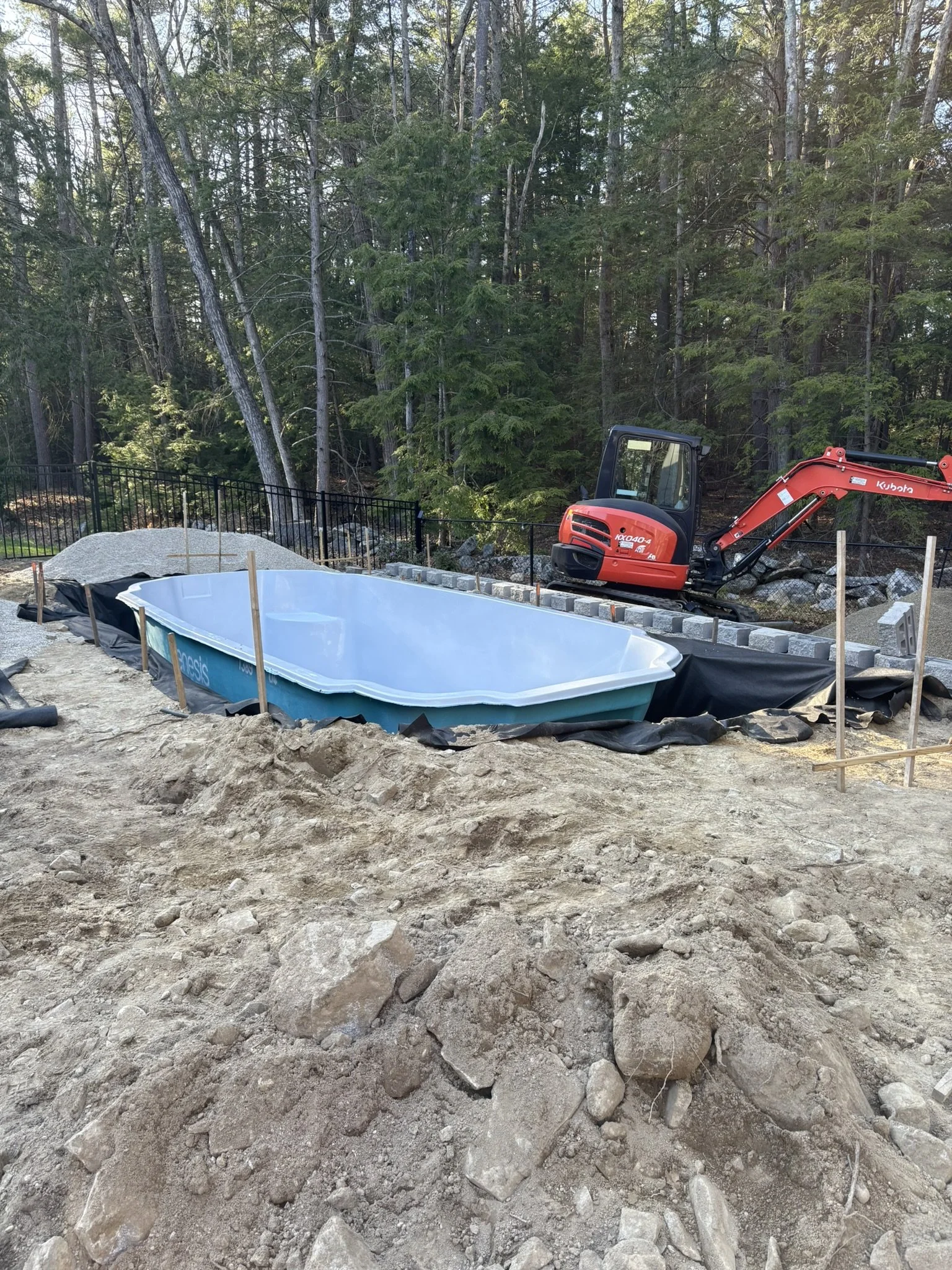What Type of in-ground pool is best for cold climates?
Why Fiberglass Pools Are Ideal for Cold Climates
In cold climates, fiberglass pools are widely regarded as the best option due to their superior resistance to freeze AND thaw cycles. Their flexible construction allows them to expand and contract with temperature changes without compromising structural integrity.
Key Benefits of Fiberglass Pools in Cold Climates
1. Freeze-Thaw Resistance
Fiberglass is a flexible material capable of withstanding the stresses of freezing and thawing. Unlike concrete pools, which are prone to cracking, fiberglass pools maintain their shape and strength through seasonal temperature changes.
2. Natural Insulation
Fiberglass has inherent insulating properties, which help retain heat and reduce energy costs for heating the pool, an important advantage in colder regions.
3. Durability
Fiberglass is highly durable and resistant to both temperature extremes and algae growth. Its smooth, non-porous surface requires fewer chemicals and less maintenance, especially during the winterization process.
4. Quick Installation
Prefabricated as one-piece shells, fiberglass pools can be installed more quickly and with less disruption than concrete or vinyl liner pools. This is particularly beneficial in areas with shorter construction seasons.
5. Low Maintenance
The smooth surface of fiberglass resists algae buildup, reducing the need for frequent cleaning and chemical use both of which are more challenging in colder months.
Other Pool Options in Cold Climates
Concrete Pools
Concrete pools offer custom design flexibility but are more vulnerable to freeze-thaw damage. They require meticulous sealing and ongoing maintenance to prevent cracking and other weather-related issues.
Vinyl Liner Pools
Vinyl liner pools are more affordable but less durable in cold climates. Liners can become brittle and prone to cracking in freezing temperatures, leading to potential leaks and costly repairs.
Additional Considerations
Pool Covers: Regardless of the pool type, a high-quality pool cover helps retain heat, reduce evaporation, and lower energy costs.
Proper Installation: Professional installation and appropriate backfilling are critical for all pool types in cold climates to prevent ground shifting and damage from freezing and thawing.
Conclusion
For homeowners in colder regions, fiberglass inground pools offer the best balance of durability, flexibility, and energy efficiency. Their resistance to freeze-thaw cycles, natural insulation, and low maintenance requirements make them a top choice for long-term performance and reliability in cold climates.

